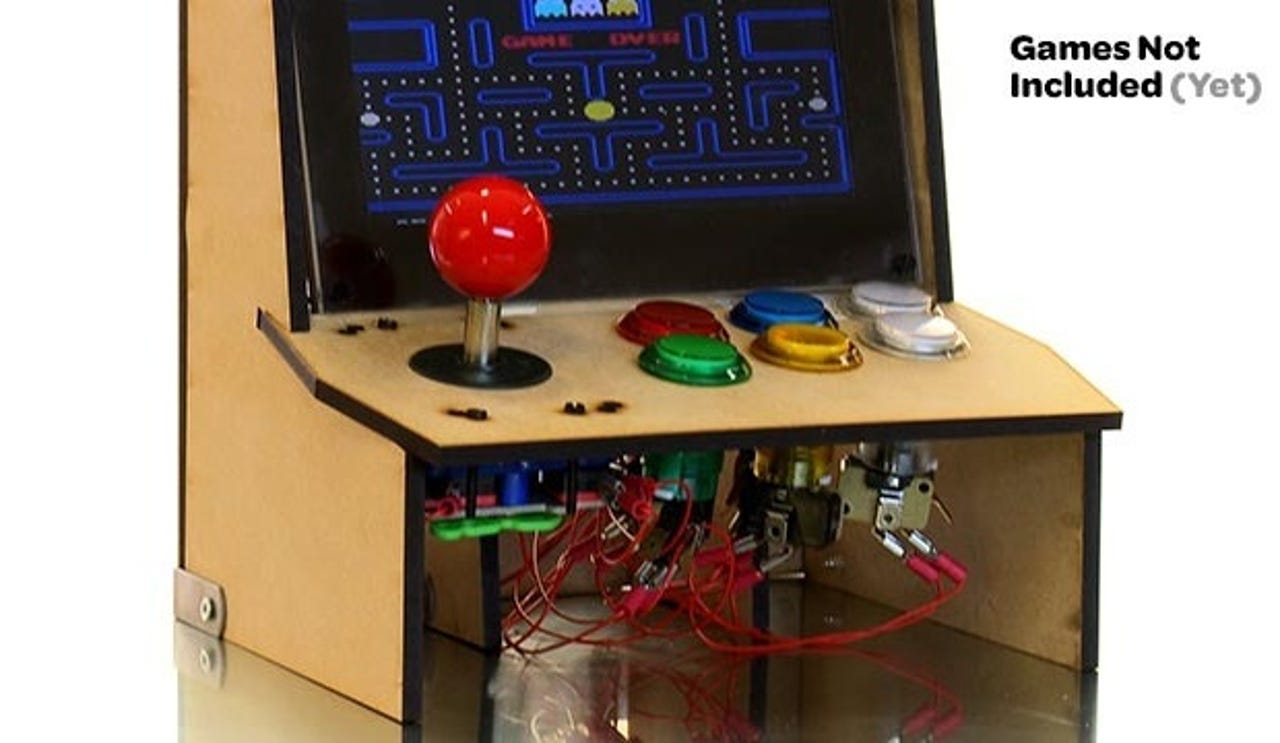Raspberry Pi arcade kit wins Kickstarter funding in just two days

A British project to build and market an arcade game cabinet for the Raspberry Pi has secured funding on Kickstarter in just two days.

The Picade, a self-assembly arcade cabinet, reached its target of £32,768 on Friday, two days after launching on crowdfunding site Kickstarter. Picade was the first UK project to go live on Kickstarter after the site threw open its doors to projects based in the UK.
"The Picade and Picade Mini are high-quality desktop arcade cabinets for your Raspberry Pi that are designed and manufactured with care in Sheffield, UK," the project page says.
The kit includes an LCD panel, mounts, speakers, arcade buttons and joystick. "The only tools you'll need are a screwdriver and a pair of pliers. Total build time is around one hour," the project's makers say. "You then load up your Raspberry Pi with whatever games or emulators you want to play, hook it up to the Picade and have a blast!"
The Picade is currently at the prototype stage and needs funding from Kickstarter to improve the manufacturing process and to develop a custom printed circuit board.
The Picade still has until 29 November to accept donations through Kickstarter. If it reaches £49,152, the project will make decals available for the arcade cabinet. If it reaches £65,536, the team will research which other devices besides the Raspberry Pi could become Picade-compatible.
The device is the invention of Paul Beech and Jon Williamson, makers of the popular Pibow case for the Raspberry Pi. Since its launch in February, the cheap, Linux-based computer has inspired numerous design projects, from voice-controlled robot arms to supercomputer-like clusters.
Kickstarter is a US-based crowd-funding site that enables people to pitch for funding for creative projects, from tech start-ups to films. Those beginning a Kickstarter project set a funding target and a date by which it must be reached; if the target is not met in the allotted time, the project is not funded and people pledging cash do not have to pay up. If the target is reached, the project goes ahead - less a five percent cut for Kickstarter.